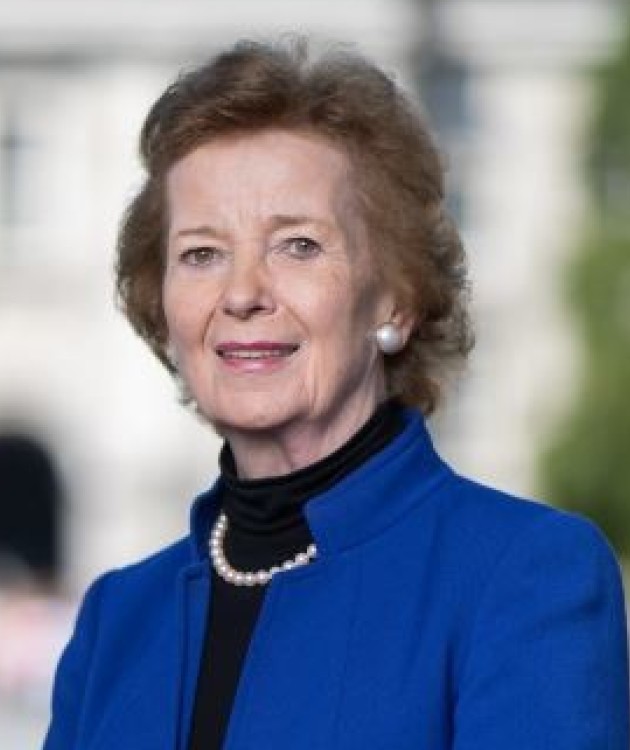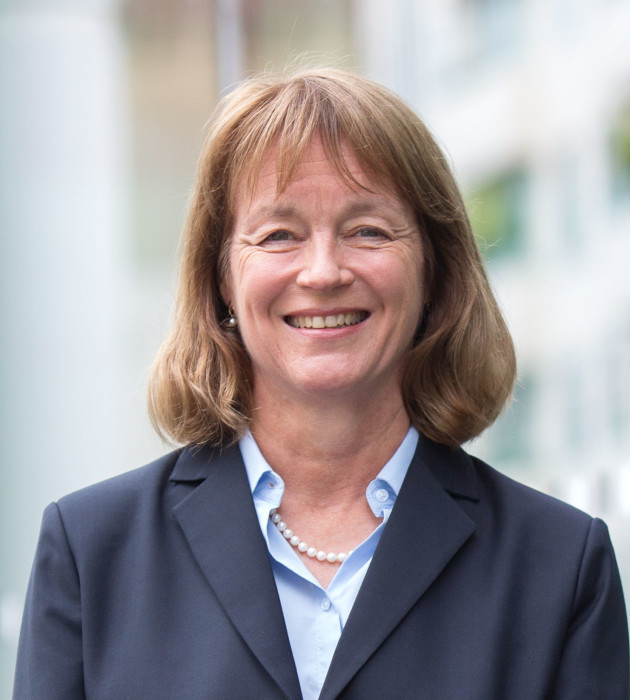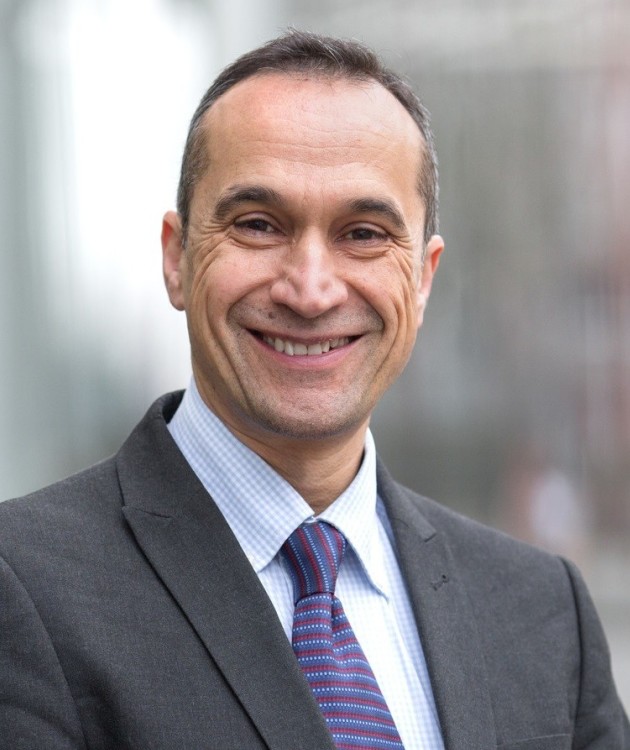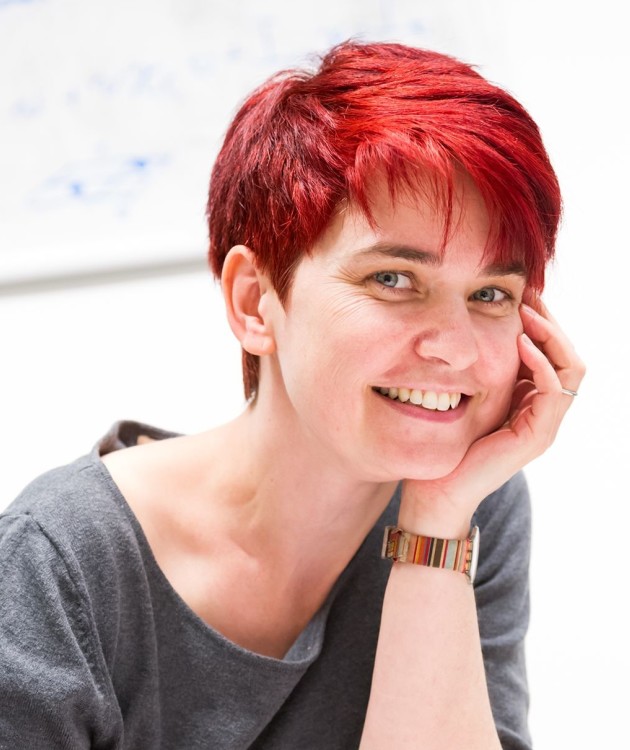Transition to Zero Pollution Initiative at Imperial College London will build new partnerships between research, industry and government – from fundamental science and engineering, systems thinking, human health, new business models, and policymaking – to realise our vision of a sustainable zero pollution future.
The keynote address will be given by Mary Robinson, former President of Ireland and UN High Commissioner for Human Rights. Mary is one of the world’s most respected advocates for climate justice and has served as UN Special Envoy for Climate Change and UN Special Envoy on El Nino and Climate and until recently led the Mary Robinson Foundation – Climate Justice. Mary is currently Chair of The Elders and Adjunct Professor for Climate Justice at Trinity College Dublin. Her keynote address will be followed by an audience Q&A.
Professor Mary Ryan, Vice-Dean Research (Engineering) and College Champion for Transition to Zero Pollution, will then lead a panel discussion and Q&A with academic and industry leaders:
- Baroness Brown of Cambridge (Julia King), Engineer and Crossbench Member of the House of Lords
- Professor Mike Berners-Lee, Professor and fellow of the Institute for Social Futures at Lancaster University
- Professor Nilay Shah, Head of Chemical Engineering and former Director of the Centre for Process Systems Engineering (CPSE), Imperial College London
Agenda
- 16.30 – Welcome from Professor Ian Walmsley, Provost
- 16.35 – Keynote address from Mary Robinson
- 17.10 – Q&A with Mary Robinson chaired by Professor Mary Ryan
- 17.25 – Break
- 17.30 – Panel discussion
- 17.45 – Q&A with panel chaired by Professor Mary Ryan
- 17.55 – Vote of Thanks from Professor Alice P. Gast, President
- 18.00 – Close
Speakers
Mary Robinson
 Mary Robinson is Adjunct Professor for Climate Justice in Trinity College Dublin and Chair of The Elders. She served as President of Ireland from 1990-1997 and UN High Commissioner for Human Rights from 1997-2002. She is a member of the Club of Madrid and the recipient of numerous honours and awards including the Presidential Medal of Freedom from the President of the United States Barack Obama. Between 2013 and 2016 Mary served as the UN Secretary General’s Special Envoy in three roles; first for the Great Lakes region of Africa, then on Climate Change and most recently as his Special Envoy on El Niño and Climate. Her Foundation, the Mary Robinson Foundation – Climate Justice, established in 2010, came to a planned end in April 2019.
Mary Robinson is Adjunct Professor for Climate Justice in Trinity College Dublin and Chair of The Elders. She served as President of Ireland from 1990-1997 and UN High Commissioner for Human Rights from 1997-2002. She is a member of the Club of Madrid and the recipient of numerous honours and awards including the Presidential Medal of Freedom from the President of the United States Barack Obama. Between 2013 and 2016 Mary served as the UN Secretary General’s Special Envoy in three roles; first for the Great Lakes region of Africa, then on Climate Change and most recently as his Special Envoy on El Niño and Climate. Her Foundation, the Mary Robinson Foundation – Climate Justice, established in 2010, came to a planned end in April 2019.
A former President of the International Commission of Jurists and former chair of the Council of Women World Leaders she was President and founder of Realizing Rights: The Ethical Globalization Initiative from 2002-2010 and served as Honorary President of Oxfam International from 2002-2012.
Mary Robinson serves as Patron of the International Science Council and Patron of the Board of the Institute of Human Rights and Business, is an Ambassador for The B Team, in addition to being a board member of several organisations including the Mo Ibrahim Foundation and the Aurora Foundation. She was Chancellor of the University of Dublin from 1998 to 2019. Mary’s memoir, ‘Everybody Matters’ was published in September 2012 and her book, ‘Climate Justice – Hope, Resilience and the Fight for a Sustainable Future’ was published in September 2018.
Professor Alice P. Gast
 Professor Alice P. Gast is President of Imperial College London. Prior to her appointment at Imperial in September 2014, Professor Gast was the President of Lehigh University (2006 – 2014) and the Vice-President for Research and Associate Provost and Robert T. Haslam Professor of Chemical Engineering at the Massachusetts Institute of Technology (2001 – 2006). An expert in surface and interfacial phenomena and the behaviour of complex fluids, Professor Gast was a faculty member at Stanford University (1985 – 2001), being promoted to full professor in 1995. She was affiliated with the Stanford Synchrotron Radiation Laboratory.
Professor Alice P. Gast is President of Imperial College London. Prior to her appointment at Imperial in September 2014, Professor Gast was the President of Lehigh University (2006 – 2014) and the Vice-President for Research and Associate Provost and Robert T. Haslam Professor of Chemical Engineering at the Massachusetts Institute of Technology (2001 – 2006). An expert in surface and interfacial phenomena and the behaviour of complex fluids, Professor Gast was a faculty member at Stanford University (1985 – 2001), being promoted to full professor in 1995. She was affiliated with the Stanford Synchrotron Radiation Laboratory.
Professor Gast is a Fellow of the American Academy of Arts and Sciences, the American Institute of Chemical Engineers, the Royal Academy of Engineering, the City and Guilds of London Institute, the Académie des Technologies, France, and she is a member of the National Academy of Engineering; the League of European Research Universities (LERU); the Academic Research Council for the Singapore Ministry of Education.
Professor Gast was appointed to the board of directors of Chevron Corporation. She is a member of the World Economic Forum Global University Leaders’ Forum (GULF) and is also a Co-Vice Chair of the Advisory Board for the World Economic Forum Centre for the Fourth Industrial Revolution (C4IR).
Professor Ian Walmsley
 Professor Ian Walmsley FRS became the second Provost of Imperial College London in September 2018. He is also Chair in Experimental Physics at the College. Before joining Imperial, Professor Walmsley served as Pro-Vice-Chancellor (Research and Innovation) and Hooke Professor of Experimental Physics at the University of Oxford.
Professor Ian Walmsley FRS became the second Provost of Imperial College London in September 2018. He is also Chair in Experimental Physics at the College. Before joining Imperial, Professor Walmsley served as Pro-Vice-Chancellor (Research and Innovation) and Hooke Professor of Experimental Physics at the University of Oxford.
Professor Walmsley graduated from Imperial with first class honours in physics in 1980, and completed his PhD at the University of Rochester before working as a postdoc at Cornell University. He became Assistant Professor of Optics at the University of Rochester in 1988, and held a number of roles there before joining the University of Oxford in 2001 as Professor of Experimental Physics. He was also a Senior Visiting Fellow at Princeton University.
He was appointed Pro-Vice-Chancellor (Research) of the University of Oxford in 2009, becoming Pro-Vice-Chancellor (Research and Innovation) in 2015. At Oxford, he led the Networked Quantum Information Technologies Hub and headed up the creation of the Rosalind Franklin Institute. He was a member of the EPSRC Physics Strategic Advisory Team and was on the Max Planck Institute for Quantum Optics’ Science Advisory Board. In recognition of his contributions to quantum optics and ultrafast optics, Professor Walmsley was elected a Fellow of the Royal Society in 2012. He is also a Fellow of the Institute of Physics, the American Physical Society and the Optical Society of America.
Panellists
Baroness Brown of Cambridge (Julia King)
 Baroness Brown is an engineer and a Crossbench Member of the House of Lords, with extensive experience in industry and academia. For 16 years she was an academic at Cambridge University, going on to spend eight years at Rolls-Royce plc in senior roles including Director of Advanced Engineering for the Industrial Businesses and Director of Engineering and Technology for the Marine Business. Before becoming a Member of the House of Lords in 2015, she was Dean of Engineering at Imperial College London and subsequently Vice-Chancellor of Aston University for ten years.
Baroness Brown is an engineer and a Crossbench Member of the House of Lords, with extensive experience in industry and academia. For 16 years she was an academic at Cambridge University, going on to spend eight years at Rolls-Royce plc in senior roles including Director of Advanced Engineering for the Industrial Businesses and Director of Engineering and Technology for the Marine Business. Before becoming a Member of the House of Lords in 2015, she was Dean of Engineering at Imperial College London and subsequently Vice-Chancellor of Aston University for ten years.
Julia advises the UK Government as Vice Chair of the UK Committee on Climate Change and Chair of the Adaptation Committee, she is also a member of the Government’s new Hydrogen Advisory Committee. She chairs The Carbon Trust and is a non-executive director of the Offshore Renewable Energy Catapult. Until its sale in 2017 she was a non-executive director of the Green Investment Bank. She led the King Review on decarbonising transport (2007) for the Chancellor of the Exchequer and is the Sector Champion for the Offshore Wind Sector Deal, part of the UK Government’s Industrial Strategy.
Julia was made a Dame Commander of the British Empire for services to education and technology on 2015. She is a Fellow of the Royal Society of London and the Royal Academy of Engineering.
Professor Mike Berners-Lee
 Professor Mike Berners-Lee thinks, writes, researches and consults on sustainability and responses to the challenges of the twenty-first century. He is a professor and fellow of the Institute for Social Futures at Lancaster University, where he develops practical tools for thinking about the future and researches the global food system and carbon metrics. Mike is founder and director of Small World Consulting, an associate company of Lancaster University, and leader in the field of carbon metrics, targets and actions. The company works with organisations from small businesses to tech giants.
Professor Mike Berners-Lee thinks, writes, researches and consults on sustainability and responses to the challenges of the twenty-first century. He is a professor and fellow of the Institute for Social Futures at Lancaster University, where he develops practical tools for thinking about the future and researches the global food system and carbon metrics. Mike is founder and director of Small World Consulting, an associate company of Lancaster University, and leader in the field of carbon metrics, targets and actions. The company works with organisations from small businesses to tech giants.
He is author of How Bad Are Bananas? The Carbon Footprint of Everything. His second book, The Burning Question: We Can’t Burn Half the World’s Oil, Coal, and Gas. So How Do We Quit?, explores the big picture of climate change and the underlying global dynamics, asking what mix of politics, psychology and technology are required to deal with the problem.
His third book, There Is No Planet B, takes a big-picture perspective on the environmental and economic challenges of the day, crunching the numbers and plotting a course of action to save our planet by looking at food, energy, travel and transport, economic growth, technology and the values we need to develop to save our future.
Professor Nilay Shah
 Nilay Shah is the Head of Chemical Engineering and former Director of the Centre for Process Systems Engineering (CPSE) at Imperial College London. His research interests include the application of modelling and mathematical/systems engineering techniques to analyse and optimise low carbon industrial and energy systems, including hydrogen infrastructures, carbon capture and storage systems, urban energy systems and bioenergy systems. He is also interested in devising process systems engineering methods to optimise industrial processes and in the application of model-based methods for plant safety assessment and risk analysis. He has published widely in these areas and is particularly interested in the transfer of technology from academia to industry. He has provided consultancy services on systems optimisation to a large number of process industry and energy companies. He was a co-founder of Process Systems Enterprise Ltd, an advanced process modelling company now part of Siemens Digital Industries.
Nilay Shah is the Head of Chemical Engineering and former Director of the Centre for Process Systems Engineering (CPSE) at Imperial College London. His research interests include the application of modelling and mathematical/systems engineering techniques to analyse and optimise low carbon industrial and energy systems, including hydrogen infrastructures, carbon capture and storage systems, urban energy systems and bioenergy systems. He is also interested in devising process systems engineering methods to optimise industrial processes and in the application of model-based methods for plant safety assessment and risk analysis. He has published widely in these areas and is particularly interested in the transfer of technology from academia to industry. He has provided consultancy services on systems optimisation to a large number of process industry and energy companies. He was a co-founder of Process Systems Enterprise Ltd, an advanced process modelling company now part of Siemens Digital Industries.
Professor Mary Ryan (Chair)
 Mary Ryan leads the Transition to Zero Pollution initiative. She is Professor of Materials Science and Nanotechnology at Imperial, and Vice-Dean (Research) in the Faculty of Engineering. She joined Imperial in 1998 from Brookhaven National Laboratory in the US where she was assistant scientist in the Materials-Environment Interactions Group. She graduated from Manchester University with a Joint Honours degree in Mathematics and Physics and was then awarded a PhD in Materials Science carrying out early work with in situ electrochemical STM to study passivation phenomena in binary alloy systems.
Mary Ryan leads the Transition to Zero Pollution initiative. She is Professor of Materials Science and Nanotechnology at Imperial, and Vice-Dean (Research) in the Faculty of Engineering. She joined Imperial in 1998 from Brookhaven National Laboratory in the US where she was assistant scientist in the Materials-Environment Interactions Group. She graduated from Manchester University with a Joint Honours degree in Mathematics and Physics and was then awarded a PhD in Materials Science carrying out early work with in situ electrochemical STM to study passivation phenomena in binary alloy systems.
Mary leads a large interdisciplinary group focused on understanding nanoscale materials, and nanoscale interfaces in and between materials and their environments. She has a particular interest in the development of operando approaches and has pioneered nanoscale methods in synchrotron science.
Her research spans diverse application areas including: energy materials (batteries, magnetocaloric cooling devices, photovoltaics, fuel cells and catalysis); nanomaterials for bio-sensors and therapies; the mechanisms that lead to human and environmental toxicity associated with nanostructures, and the potential of nanomaterials for environmental remediation (in particular for nuclear waste). A key aspect of this work is understanding the reactivity and stability of nanostructures in operando in order to maximize efficiency and lifetime of devices and systems. She was elected Fellow of the Royal Academy of Engineering in 2015 and is a Fellow of IoM3 and of the Institute of Corrosion.